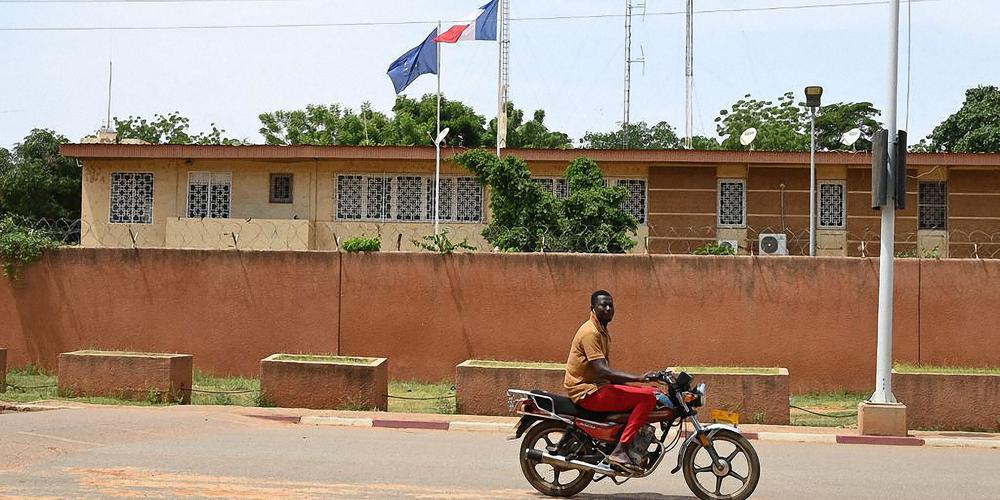President Emmanuel Macron indicated in his speech to ambassadors on Monday that the French representative was still in post in Niamey despite the end of the military ultimatum
The European Union expressed on Monday its “full support” for the French ambassador to Niger, still in office while the soldiers who took power in this country asked for his departure.
“The decision of the putschists to expel the French ambassador is a new provocation which cannot in any way help to find a diplomatic solution to the current crisis”, declared the spokesperson of the EU diplomatic service, Nabila Massrali, in a press release. “The European Union does not and will not recognize the authorities resulting from the putsch in Niger,” she added, recalling a position already expressed at the end of July.
The soldiers who seized power in Niger on July 26 and have since held the overthrown President Mohammed Bazoum prisoner in the presidential palace have taken France, the former colonial power, as their preferred target. The National Council for the Safeguarding of the Homeland (CNSP) in power, headed by General Abdourahamane Tiani, asked Friday evening for the departure of the French ambassador, Sylvain Itté. The CNSP also denounced the military agreements between Niamey and Paris.
New EU sanctions?
Thousands of people in favor of the coup demonstrated on Sunday near the French military base in Niamey, waving signs calling in particular for the departure of French troops.
Paris, which does not recognize the military regime, has adopted a position of firmness. “The putschists have no authority” to demand the departure of the ambassador, the Foreign Ministry said on Friday evening.
The European Union suspended its budget aid to Niger and warned that it could impose new sanctions following the coup. President Mohamed Bazoum “was democratically elected, he is and therefore remains the only legitimate President of Niger” declared the head of European diplomacy Josep Borrell on July 29, demanding his release “unconditionally and without delay”.
This article is originally published on sudouest.fr









